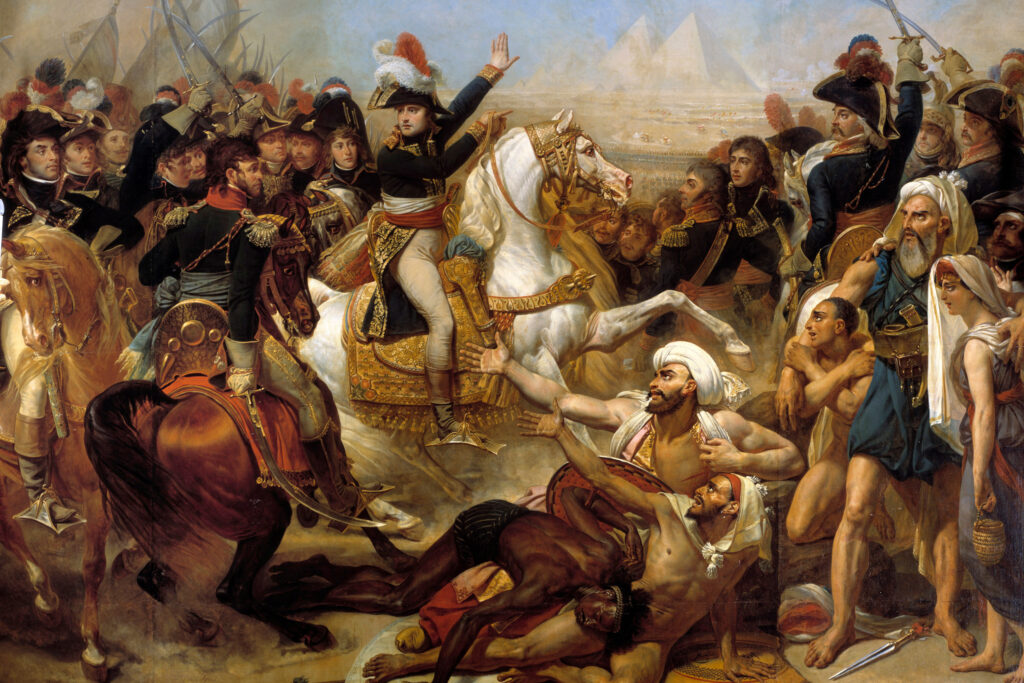Samuel Huntington’s “Clash of Civilizations,” an article and later a book that few liked but many cited, merits revisiting. Hans Kundnani and Srirupa Roy consider today’s surprising and irresistible rise of “civilizational” rhetoric in different quarters of the globe with Huntington in mind. Unlike Huntington, they don’t necessarily see today’s civilizational turn ending in catastrophe.
The Zurich-based intellectual historian Adam Knowles follows with a close reading of Germany’s historical New Right (Neue Rechte). The New Right’s strategic ideological dance vis-à-vis National Socialism and in the postwar period is a story that has contemporary resonance. As Yeats once asked, “How can we know the dancer from the dance?”
Our curated section kicks off with the Ukrainian historian Mikhail Minakov’s sharp dissection of liberalism’s frailties through the lens of three important thinkers. We follow with an intriguing romp through the technology texts that matter to Chinese intellectuals and elites. Afra Wang, whose work focuses on the nexus between China and Silicon Valley, is an ideal guide. And from WIRED is another story about intellectual origins, this time about the grim reaper Peter Thiel’s comradeship with an Austrian theologian.
On the musical front, I have been besotted recently with the polyphonic sounds of the flautist James Newton. Here is “The Dabtara” from his record Axum, a 1981 ECM recording, from which the Beastie Boys once allegedly sampled without giving proper credit.
—Leonard Benardo, senior vice president at the Open Society Foundations
The Clash of Civilizationalisms

Hans Kundnani and Srirupa Roy
The Ideas Letter
Essay
Kundnani and Roy trace a “global civilizational turn,” in which countries increasingly appeal to concepts of distinct civilizations rather than mere states. Academics discuss “civilizationalism” varyingly in different contexts, and its ties to nationalism and racism are disputed. And while it often seen as a non-Western challenge to liberal internationalism, the term also reflects domestic political and neoliberal dynamics.
“ … this global civilizational turn should not necessarily be understood as a straightforward resurgence of Huntington’s thesis. Many of those political figures who are now speaking in civilizational terms, especially outside the West, do not imagine a world defined by a clash of civilizations. Rather, they frame their civilizational claims as a step toward greater harmony between different powers—in short, as a kind of tolerant and particularist defense against what they perceive as a homogenizing Western universalism. Outside the West, civilizationalism is closely related to the ideas of multipolarity and the “democratization” of international politics. In that sense it may be more in line with Toynbee than Huntington.“
Misunderstood Radicals
The German New Right

Adam Knowles
The Ideas Letter
Essay
Knowles maps how the Swiss philosopher Armin Mohler—a post-WWII apologist of fascism and self-styled theorist of the “Conservative Revolution”—helped launder fascist-adjacent thinkers into respectability, transforming their defeat into a usable past for the European New Right. Far from reviving Nazism, this movement recasts those dissident strands that once found Hitler’s regime too tame, refining them into a post-fascist politics adapted to democratic life today, which mobilizes far-right parties like the AfD in Germany and FPÖ in Austria.
“As a sophisticated intellectual movement, the New Right navigates with agility the limits of acceptable political discourse while continually pushing those limits forward by disavowing any association with National Socialism. This repudiation should not be dismissed as a mere pretext, but instead interrogated as a strategy. Never mind whether the New Right is more or less dangerous than an openly neo-Nazi movement. Such questions ultimately distract from the New Right’s subtle long-term political strategy, which—as the case of Mohler makes clear—involves tiresome rounds of peekaboo between fascist declarations and disavowals. The scholarship on fascism risks becoming a parasite that latches on to its object of analysis. Yet the political task of confronting the New Right is urgent.”
Beyond Survival
Can Liberalism Learn to Build Again?
Mikhail Minakov
Mikhail’s Substack
Essay
Minakov argues that contemporary liberalism has trapped itself in an ethics of mere survival—a politics of endurance without imagination. Looking specifically at the works of Michael Ignatieff, Marlène Laruelle, and Ivan Krastev, he applauds their sober realism but faults them for mistaking prudence for purpose, description for renewal, and legality for vitality. Against this defensive minimalism, Minakov proposes a “paleoliberalism” that revives liberalism’s forgotten ambitions—law before force, liberty as civic infrastructure, and public experimentation as a source of meaning—seeking not to preserve a dying creed but to rebuild its capacity to make freedom livable again.
“The point is not to refute these thinkers—respected colleagues, my commilitoni as Italians would say—but to push past the survival minimum they risk enshrining. A paleoliberal agenda begins with learning, not longing: the last thirty years taught, at considerable cost, that regime change is not order, that markets are not self-legitimating, that panicked borders deform republics, and that liberal militarism corrodes the cosmopolitan law it claims to defend. The remedy is not retreat but re-prioritization: liberties at home as grand strategy, peace abroad as discipline, lawful frameworks binding us as strictly as we bind others. Survival will be required. Stewardship is the work.”
The China Tech Canon
Afra Wang
Asterisk
Essay
Wang traces the intellectual lineage of China’s tech elite, arguing that while Silicon Valley founders read themselves through Tolkien and Asimov—which built to a shared ethos among them—their Chinese counterparts draw from a hybrid set of canons spanning Maoist manuals, Confucian statecraft, and the fictional worlds of Jin Yong and Liu Cixin. In these canons, which she dubs “red” and “grey,” revolutionary strategy merges with classical philosophy to produce a corporate culture fluent in both Marxist mobilization and McKinsey management strategies.
“For me, approaching these texts as an adult—after years of resisting Confucian orthodoxy in school—proved revelatory. They explained more about the enduring value gaps between China and the West than any management manual or policy paper. When Arthur Kroeber describes China as a ’deep and turbulent ocean’ where ancient currents persist beneath contemporary surfaces, he gestures toward this submerged canon. Without it, the Chinese tech scene looks like an erratic product of capital frenzy and policy chaos. With it, apparent disorder resolves into patterned continuity spanning two millennia of statecraft and survival.”
The Real Stakes, and Real Story, of Peter Thiel’s Antichrist Obsession
Laura Bullard
WIRED
Essay
Bullard traces how billionaire financier Peter Thiel has woven a decades-long obsession with the biblical figure of the Antichrist and the katechon—a restraining force—into his worldview, drawing heavily on the fraught legal theory of Carl Schmitt and, paradoxically, the work of Austrian theologian Wolfgang Palaver, who has countered the Nazi theorist. These intellectual currents are not merely speculative: they animate Thiel’s real-world moves in technology, surveillance, investment and politics.
“And, believe it or not, the nature of Palaver and Thiel’s relationship gets even more complicated. Palaver has been reluctant to oppose Thiel publicly, and in our conversations he sometimes downplays his own influence and disagreements with the billionaire. Perhaps that’s because, as followers of Girard, both men believe that any two figures who oppose each other strongly enough—as Palaver has opposed Schmitt, as Thiel opposes the Antichrist—are bound to mimic each other and become entangled. As Thiel himself has said, ‘Perhaps if you talk too much about Armageddon, you are secretly pushing the agenda of the Antichrist.’”
